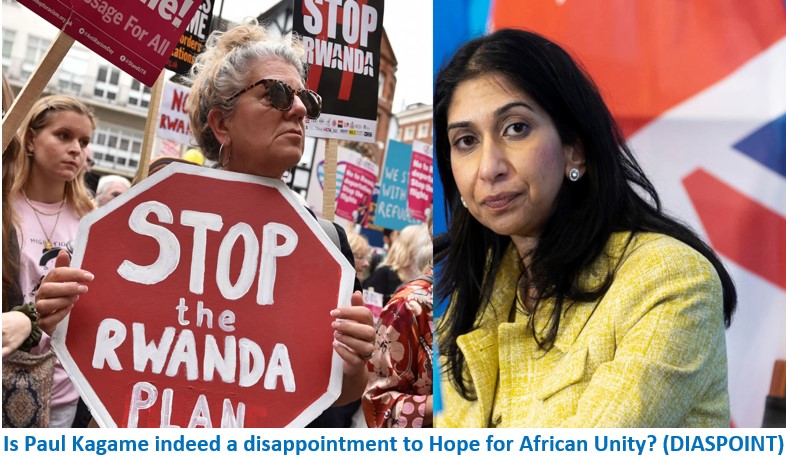Why UK court ruled Rwanda isn’t a safe place to send refugees – and what this means for the government’s immigration plans
Post By Diaspoint | July 1, 2023

The Court of Appeal has ruled against the UK government’s plan to send asylum seekers to Rwanda, adding a significant legal hurdle to the prime minister Rishi Sunak’s promise to “stop the boats”.
Under the migration partnership announced in April 2022, the UK government could send people to Rwanda who had entered the UK irregularly. Rwanda would then determine their asylum claims and, if they were found to be refugees, they would be resettled there. The government has argued this will deter people from making dangerous boat crossings across the English Channel, despite evidence showing such policies don’t work.
After a series of legal challenges, the European Court of Human Rights intervened to stop the first deportation flight from taking off.
In December 2022, the High Court found that the Rwanda policy was lawful. Now, the Court of Appeal has overturned that decision.
Europeans, get our weekly newsletter with analysis from European scholars
The main question for the court was whether Rwandan officials would accurately and fairly assess the asylum claims of people sent there from the UK. The claimants, a group of 10 refugees and the organisation Asylum Aid, argued that the Rwandan legal system would put genuine refugees at risk of being erroneously returned to countries where they would face persecution.
Two out of three judges agreed, finding that Rwanda’s current asylum system is not reliably fair and effective, citing five key reasons:
- Asylum interviews are conducted in a brief and perfunctory manner, which could prevent a person from being able to fully explain their case;
- Rwanda’s committee to determine refugee status does not allow lawyers to make arguments on behalf of a person, to help explain why they should be granted asylum;
- Local non-governmental organisations do not have capacity to provide asylum seekers with legal assistance throughout the process;
- Rwandan officials deciding applications do not have sufficient skill and experience to make reliable decisions, partly due to a lack of effective training; and
- Judges in Rwanda may be susceptible to political influence and reluctant to overturn decisions not to grant asylum.
While the court noted there was nothing to indicate Rwanda was not trying its best to determine asylum claims fairly, Lord Justice Underhill observed that “aspiration and reality do not necessarily coincide”.
Read More from original source
